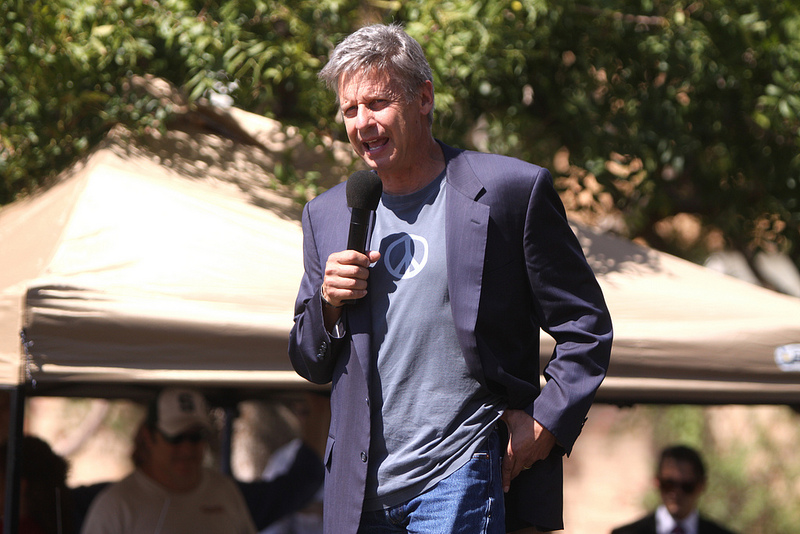Gun Control is Not a Culture War Issue
But worrying about a vice presidential candidate's attitude vs. reasonable assumptions about presidential policy is privileging culture war over policy.
Robert Tracinski at The Federalist has replied to my reply to his reply to Nick Gillespie's reply to him.
Whew. But wait, there's more!

Tracinski's latest, under the bold title "Gary Johnson is a Left-Wing Candidate," does a good job showing that those who insist that the Libertarian Party is always and everywhere the "party of principle" about libertarianism compared to the tainted Republicans will have a lot of 'splaining to do after the Gary Johnson campaign. (Though those who believe in the existence of a state financed by taxation, which I'm pretty sure includes everyone voting for Donald Trump and nearly everyone reading The Federalist, have more arguing to do re: Johnson's willingness to countenance a "carbon fee" as something inherently "left-wing" than just pointing at it. It shows Johnson is a terrible anarchist, to be sure, but let those who don't believe in taxation at all throw the first stone.)
Tracinski in the course of his essay very much misunderstands a point I tried to make regarding William Weld's silly comments about guns, so I suppose I should clarify.
Tracinski says I:
redefines gun control as "a 'progs v. right-winger' culture war consideration"—something that will be news, no doubt, to Second Amendment advocates—and that this is his way of downgrading the issue to the realm of insignificance.
What I wrote:
Despite the obvious fact that Weld is less of a fan of, or less comfortable with, the widespread existence of guns in our culture than a Tracinski or a me, Weld did acknowledge to Nick Gillespie in an interview forReason that to try to ban them now would create an instant 30 million or so felons.
The context strongly implies he is not interested in creating those felons. So, seeing Weld on guns as a dealkiller is just a matter of one's sense of the personal stances and attitudes of the candidate, who as vice president clearly was not about to be passing legislation banning any kind of weapon or restricting American weapon rights in any manner anyway, not about what would actually happen to America if he were vice president.
I, too, am quite unhappy that a Libertarian Party vice presidential candidate says things like what bothered Tracinski about guns. But again, that's internal libertarian movement amour propre, not an actual worry about how a Johnson/Weld presidency would affect the country.
Certainly, Weld's comments were terrible. And if I thought there were any reason to believe a Johnson/Weld administration would try to ban AR-15s or handguns, I would say that's certainly a stellar reason for anyone devoted to liberty to eschew them. Despite Tracinski's misinterpretation of my point, I consider gun control an issue so significant it's the only policy issue I have written an entire book about, Gun Control on Trial.
What I was saying, and I just need to repeat myself I guess, is that Weld himself made it pretty clear in an interview with Reason's Nick Gillespie that he's aware that banning "assault rifles" now would be a bad idea. And the presidential candidate Gary Johnson has been pretty good on gun policy and gun culture questions, though I question his lack of desire to roll back any existing federal gun law.
Certainly good enough on guns that those not looking for reasons to walk away from the L.P. in favor of Trump (or non-voting, a noble option) should realize that fearing an assault weapon ban from a Libertarian administration is not warranted by evidence, and thus harping on Weld's stupid comments is not about governance, it's about the type of person you think Weld is.
That Weld has ignorant, bad, dangerous attitudes about guns is perfectly clear. To worry about that and not a reasonable expectation based on the full body of evidence of likely Johnson administration policy is looking for reasons to reject the ticket because of culture war and not policy.
No question the Libertarian Party ticket is not as libertarian as I or most libertarians would like. The question then, for those who feel obliged to vote, is now: are they less libertarian in ways that are likely to be effectuated in executive policy or action than the other choices?


Show Comments (125)